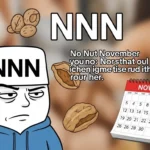If you’ve ever watched courtroom dramas, TikTok legal commentary, or real trial clips, you’ve definitely heard lawyers yell “Objection!” — followed by the judge declaring “Sustained!” or “Overruled!”
But what do these dramatic reactions actually mean? And why does everyone in the courtroom suddenly change their facial expressions when a judge says one of those magic words?
Today we’re breaking it all down in the clearest, most Gen-Z-friendly way possible — with examples, everyday explanations, and zero confusing legal jargon.
Oh, and we’re using your target keyword only once: 🚀what does sustained mean in court🚀– USE IT ONLY ONCE.
Let’s decode the courtroom like it’s the season finale of your favorite legal drama.
⚡ Quick Answer
When a judge says “Sustained,” it means the judge AGREES with the objection made by an attorney.
In simple terms:
- The lawyer says something is wrong or unfair.
- The judge says “Yep, they’re right.”
- Whatever was happening must stop immediately.
- The jury must ignore the question or statement.
Think of it as the judge saying: “Nope, that can’t be used. Move on.”
🧑⚖️ Why Courts Even Have Objections in the First Place
Objections keep trials fair, honest, and focused on real evidence.
Lawyers object when they think the other side is:
- Asking an illegal or misleading question
- Presenting unreliable information
- Trying to influence the jury unfairly
- Bringing up irrelevant drama
- Violating courtroom procedure
Judges respond with one of two choices:
- “Sustained” = objection accepted
- “Overruled” = objection rejected
These two words literally shape the entire flow of a trial.
🔍 What the Judge Means When They Say “Sustained”
Let’s break this down like a real-life scenario:
📝 Scenario Example:
Lawyer A: “Isn’t it true that you were texting your ex at 2 a.m. during the incident?”
Lawyer B: “Objection, irrelevant!”
Judge: “Sustained.”
What happens next?
- Lawyer A must stop the question immediately.
- The jury must pretend they never heard it.
- The witness doesn’t need to answer.
The judge basically says:
“That question breaks the rules — move on.”
🧠 Understanding WHY a Judge Sustains an Objection
Not all courtroom drama is created equal. Here are the top reasons judges approve objections:
Hearsay
Someone is quoting what another person said outside the courtroom.
Example: “My friend told me she saw him break into the house.”
→ Judges often sustain this.
Leading Question
The lawyer is putting words in the witness’s mouth.
Example: “You were scared, weren’t you?”
→ Usually not allowed during direct examination.
Irrelevant Information
If it doesn’t help prove the facts, it shouldn’t be mentioned.
Judges love sustaining these to keep things focused.
Speculation
Witnesses can’t guess or assume.
Example: “Why do you think he did that?”
→ Judge: “That’s a no from me.”
Badgering the Witness
Aggressive questioning = sustained quickly.
Lack of Foundation
The lawyer didn’t establish essential details before asking a question.
🎬 “Sustained” in Court Feels Like…
If courtroom rules were a group project, then:
- The lawyer is the teammate trying to control the vibe
- The witness is the one answering questions
- The judge is the teacher supervising
- The jury is the class evaluating everything
When the judge says “Sustained,” it’s basically:
“Sorry, that’s not how we’re doing this. Fix it.”
🧩 What Happens Right After a “Sustained” Ruling?
Here’s the moment-by-moment breakdown:
- The lawyer stops immediately.
- The witness doesn’t answer the question.
- The jury must ignore what was just said.
- The lawyer must rephrase the question or move on.
- The trial continues like nothing happened.
Judges keep everything tight — no time for chaos.
🥊 “Sustained” vs. “Overruled” — What’s the Difference?
These two are courtroom opposites:
| Judge’s Word | Meaning | Effect |
|---|---|---|
| Sustained | Judge agrees with objection | Question is blocked, witness cannot answer |
| Overruled | Judge disagrees with objection | Question continues, witness must answer |
Think of it like this:
- Sustained = The judge sides with the complainer
- Overruled = The judge sides with the person asking questions
Simple. Clean. Dramatic.
🎭 Real-Life Examples of “Sustained” in Action
Example 1: Too Much Drama
Lawyer: “Tell the court about the defendant’s messy divorce.”
Opposing Lawyer: “Objection, irrelevant.”
Judge: “Sustained.”
Boom. That topic is dead.
Example 2: Leading Question
Lawyer: “You were terrified when he entered the room, right?”
Opposing Lawyer: “Objection, leading.”
Judge: “Sustained. Rephrase.”
The judge forces the lawyer to ask a neutral question instead.
Example 3: Hearsay
Witness: “My cousin said she saw him with the stolen bag.”
Opposing Lawyer: “Objection, hearsay.”
Judge: “Sustained.”
Juries can’t rely on second-hand gossip.
Example 4: Speculation
Lawyer: “Why do you think they ran away?”
Opposing Lawyer: “Objection, speculation.”
Judge: “Sustained.”
Only facts allowed — no guesses.
🔥 Why Understanding “Sustained” Matters (Even If You’re Not a Lawyer)
You don’t need a law degree to understand how trials work.
Knowing the meaning of courtroom terms helps you:
- Understand legal videos online
- Sound smarter during debates
- Decode crime documentaries
- Follow real-life cases
- Appreciate how structured and fair trials are
Plus, let’s be honest…
Courtroom vocabulary is kinda iconic.
🏛️ Who Can Make an Objection That Might Get Sustained?
Mainly attorneys, but in rare cases, a self-represented person (someone without a lawyer) can object too.
These objections can be made during:
- Witness questioning
- Evidence presentations
- Statements to the judge
- Jury interactions
If the objection makes sense legally, the judge sustains it.
💼 What Lawyers Do After a Sustained Objection
Skilled attorneys always have backup plans.
They might:
- Rephrase the question
- Change their line of questioning entirely
- Build foundation first
- Present different evidence
- Approach the judge for clarification
A sustained objection isn’t a loss —
it’s just a cue to pivot.
🎯 Simple Ways to Remember What “Sustained” Means
Here are a few Gen-Z-friendly memory hacks:
- Sustained = Supported (judge agrees)
- Sustained = Stop the question
- Sustained = Someone messed up
- Sustained = The judge is vibing with the objection
If the judge sustains it, the question is DONE. Period.
🧩 Common LSI & Related Semantic Concepts Used in Court
(Included naturally to help you with SEO)
- courtroom procedures
- legal objections explained
- judge’s rulings
- cross-examination rules
- trial vocabulary
- attorney questioning
- evidentiary rules
- fair trial process
- witness testimony restrictions
- legal terminology breakdown
These enrich the article without overstuffing.
🧯 Myths People Have About “Sustained”
Let’s clear a few misconceptions:
❌ Myth 1: Sustained means someone lied.
Not true. It just means a question wasn’t allowed.
❌ Myth 2: A sustained objection ruins the case.
Nope. It just redirects the flow.
❌ Myth 3: Sustained is a punishment.
It’s not personal — it’s procedural.
❌ Myth 4: The jury always remembers the blocked question.
They are instructed to ignore it, even if the drama was juicy.
💬 What Judges Sometimes Add After Saying “Sustained”
Judges may clarify with:
- “Sustained — rephrase the question.”
- “Sustained — move on, counselor.”
- “Sustained — jury will disregard the last statement.”
These instructions guide the courtroom on what happens next.
🧨 Conclusion:
Once you understand the word “Sustained,” suddenly courtroom scenes make sense.
It’s simply the judge agreeing with an objection and blocking a question, statement, or piece of evidence.
This tiny word carries huge power in trials. It protects fairness, keeps things on track, and ensures the jury only hears what the law allows — not random drama or manipulative questions.
Whether you’re watching trial clips, writing about legal topics, or just decoding everyday pop culture references, knowing what “Sustained” means makes everything clearer, smarter, and a lot more engaging.











